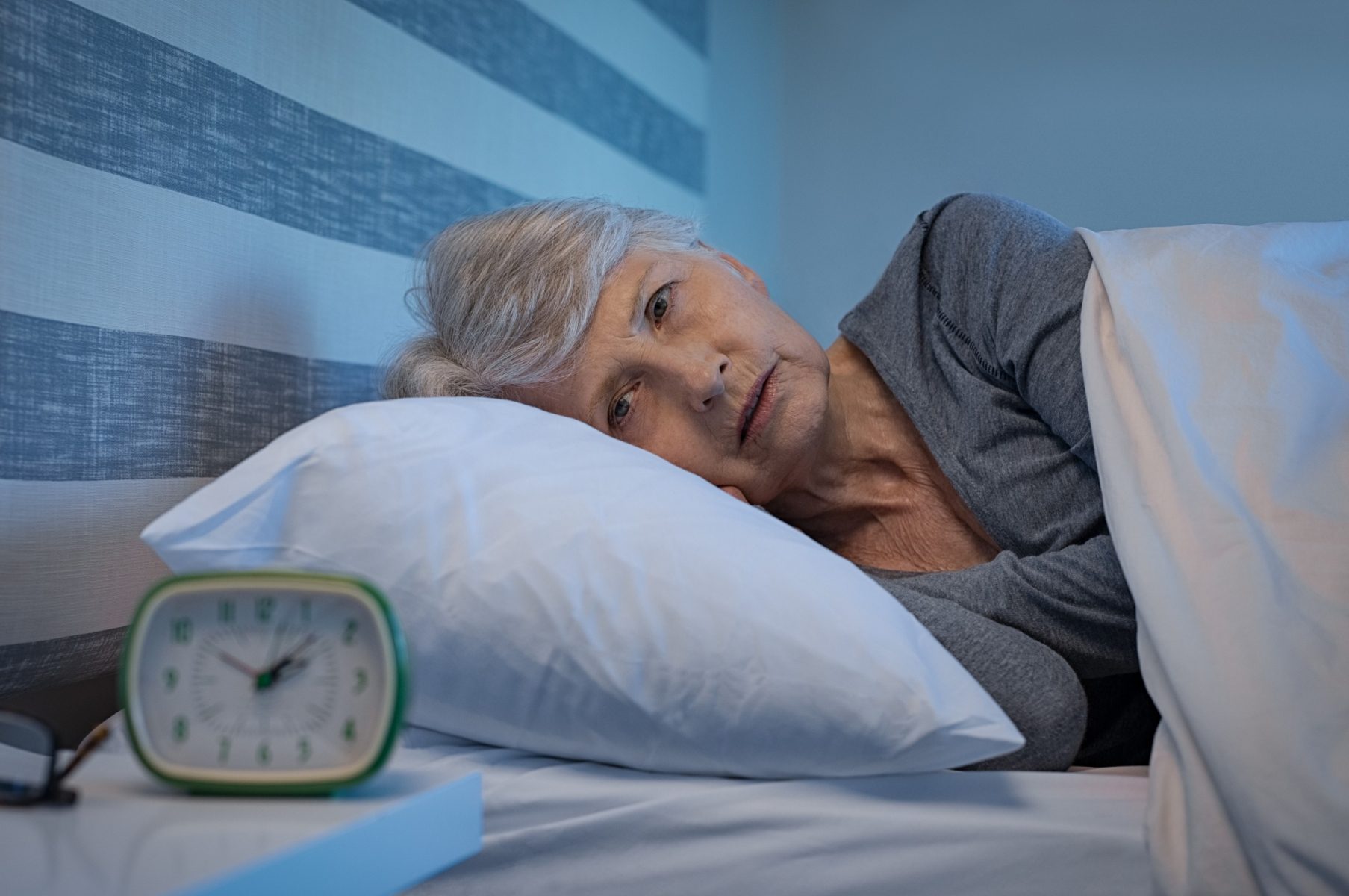Sleep is vital to us all, but as we age, it becomes harder to get the seven to nine hours of shuteye that most healthy adults require. Particularly in the elderly, the amount of time spent in deep sleep (the most refreshing stage of sleep) decreases – in part because the body produces lower levels of growth hormones. According to research, less time spent in deep sleep can lead to an exacerbation of pain (lack of sleep doesn’t cause pain, but it can make it seem worse), and dementia, including Alzheimer’s disease.
The good news is that there are many things you can do to help your senior loved ones to not only get more sleep, but get better quality sleep. Here’s how.
Stay active
Sitting around all day with little to do is a recipe for a fitful night for most people. If able, adults should get about thirty minutes of aerobic exercise each day, but avoid exercising within three hours of going to bed, as this can make it difficult to wind down. Even if seniors aren’t able to stay physically active, keeping mentally fit can help when it’s time to hit the hay. Doing puzzles, reading books, or socializing (either in person or virtually) can help keep the mind sharp and busy.
Avoid naps late in the day
Most adults experience a dip in their circadian rhythm (our internal sleep-wake cycle) in the afternoon, which can result in feelings of sleepiness. It’s important to avoid napping too late in the day; however, as this can result in insomnia at bedtime.
Create a bedtime routine
It’s important to take time to relax before bed each night. Reading, taking a warm bath, or listening to soothing music are just a few ideas to help wind down before bed. The most important thing is to start and stick to the routine as often as possible. By doing so, you’re teaching your brain and body that it’s time to calm down and relax in preparation for sleep.
Power off screens
The blue light emitted by most electronics signals our brains that it’s time to wake up. Tempting as it may be to watch TV in bed or read on a tablet, screens should be powered off or set to night mode (a trusted caregiver or family member can help access this feature on most devices) at least two hours before bed.
Blue light-blocking glasses are also available to help filter out these rays in the hours prior to turning in.
Optimize temperature
The best room temperature for sleep is around sixty-five degrees Fahrenheit. This is because throughout a normal day, your body temperature rises and falls, a pattern that is closely tied to your sleep cycle. Throughout the night, your temperature decreases, reaching its lowest point at around 5:00 a.m., and then increases slightly afterward. So if room temperature is too hot, it could interfere with your body’s natural temperature decrease and make you more restless during the night.
Avoid alcohol and caffeine
You probably know that too much caffeine, especially late in the day, can interfere with sleep, but did you know that alcohol affects sleep quality as well? This is true particularly with large amounts of alcohol, but depends upon the individual. Drinking alcohol, even in moderation, before going to bed can increase the amount of time needed to fall asleep. Individuals who consume alcohol before bed are also more likely to experience a decrease in sleep quality and disruptions to sleep.
Seek medical help
If you’ve ruled out other possible causes of insomnia or trouble getting quality sleep, it may be time to seek advice from a medical professional. He or she can rule out some more serious causes and sleep disorders, and provide treatment as appropriate. The following are some of the most common sleep disorders and symptoms.
- Sleep apnea – Individuals who suffer from sleep apnea experience short pauses in breathing while sleeping, often occurring many times during the night. If left untreated, sleep apnea can lead to other problems, such as high blood pressure, stroke, or memory loss. It’s also possible be unaware that you have sleep apnea. Symptoms include daytime drowsiness, waking suddenly, especially when accompanied by choking or gasping, and snoring.
- Movement disorders – These disorders are more common in older adults and include restless legs syndrome, periodic limb movement disorder, and rapid eye movement sleep behavior disorder.
In individuals with restless legs syndrome, individuals feel like there is tingling or pins and needles in one or both legs. Usually, the sensations are worse at night.
Periodic limb movement disorder involves repetitive movements, usually in the legs, that occur about every twenty to forty seconds and can last from a few minutes to several hours.
Rapid eye movement (REM) behavior disorder is characterized by muscle movement during the stage of sleep when dreaming occurs, a stage when the brain and nervous system normally temporarily paralyze muscle movement to keep us from acting out our dreams.
There are many other illnesses and conditions that may interfere with sleep, and it’s always best to check with a medical professional as to the best course of action if a problem is suspected.
